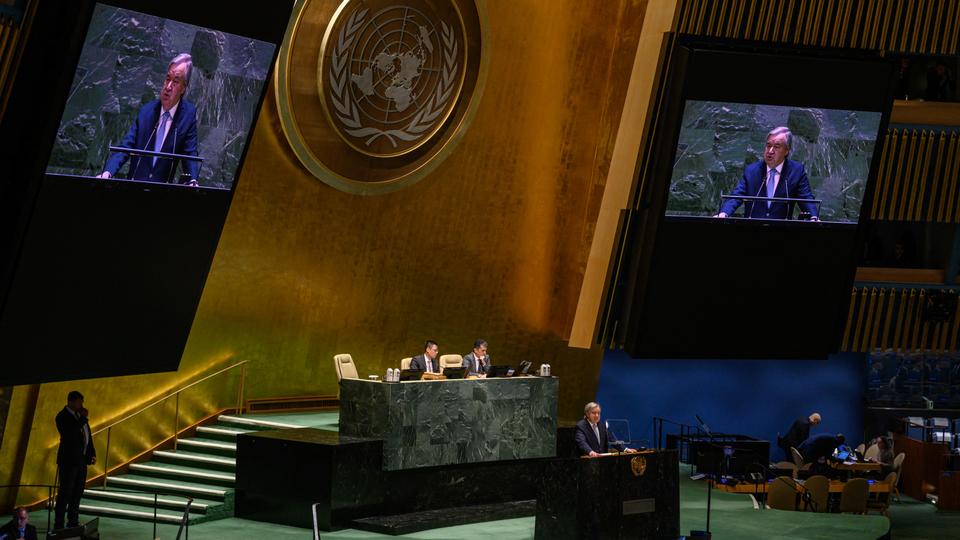United Nations’ Climate Justice Resolution: Outlining Legal Responsibilities around Climate Change

Introduction
On March 29, 2023, at the UN headquarters in New York, the UN General Assembly passed a historic resolution inviting the world’s highest court to issue a consultative opinion regarding the obligations nations have to address the climate problem. The adoption of the resolution marks an important step in the fight against climate change because it clarifies what responsibilities nations have under current international law to protect the rights of present and future generations from the negative effects of climate change. Vanuatu, a Pacific island nation was the driving force behind the resolution, which has experienced the effects of climate change and has declared its intention to request an advisory opinion from the International Court of Justice (ICJ), which was adopted by consensus and co-sponsored by more than 130 member countries. The adoption of the resolution came after a week of the UN’s Intergovernmental Panel on Climate Change (IPCC) warned that global average temperatures could rise by 1.5 degrees Celsius above pre-industrial levels by 2030-2035, which demands serious climate action this decade.
Background
Developing nations and Island nations like Vanuatu, have made the least contributions to global greenhouse gas emissions, but they bear the brunt of unpredictable and extreme weather events like hurricanes, floods, droughts and extreme heat and floods that are impacting water and food security and driving forced migration. Last month, two category 4 hurricanes struck Vanuatu, an archipelago of islands 500 miles west of Fiji with around 325,000 inhabitants. This resulted not only in the displacement of residents but also extensive damage to infrastructure as well as water and power outages for many days. After a campaign started by a group of students from a Fiji institution in 2019, the Vanuatuan government began advocating for policy measures in 2021. Ishmael Kalsakau, the Prime Minister of Vanuatu appreciated the resolution and said, “Today we have witnessed a win for climate justice of epic proportions.” He added, “The historic resolution is the beginning of a new era in multilateral climate cooperation, one that is more fully focused on upholding the rule of international law and an era that places human rights and intergenerational equity at the forefront of climate decision-making.”
 Significance of Climate Justice and the Role of ICJ
Significance of Climate Justice and the Role of ICJ
Climate justice is an important component to combat climate change because it emphasizes the disproportionate impact of climate change on the world’s most vulnerable communities. It underlines the need of dealing with the root causes of climate change and ensuring that those most impacted have a part in the whole process. Climate justice can contribute in a more equitable and just transition to a sustainable future. The International Court of Justice (ICJ) can play an essential role in achieving climate justice by serving as a legal platform for governments to address climate-related disputes and by providing advisory opinions on the issues. The United Nations chief Antonio Guterres of the General Assembly while addressing the delegates said, “Advisory opinions of the Court, the principal judicial organ of the United Nations, have tremendous importance and can have a long-standing impact on the international legal order. Advisory opinions can provide much-needed clarification on existing international legal obligations.”
Therefore, the resolution for global climate action is crucial as it urges that the International Court of Justice (ICJ) outline nations’ legal obligations relating to climate change and global warming. in addition, the resolution calls on that the ICJ issue an advisory opinion on the legal obligations of all the states to address the climate catastrophe, particularly their obligations to decrease emissions, assist vulnerable nations and take steps to protect human rights and nature. Moreover, the role of international organizations and other stakeholders must be considered to develop both global and regional solutions for addressing the climate related crises.
Conclusion
To conclude, the proponents of climate justice resolution believe that it may provide some avenues for enforcing climate regulations. The latest resolution will not only aid in bringing together various stakeholders to deal with the issues of climate change with strengthen collaboration, but it will also support local and international efforts that are aimed at climate justice.